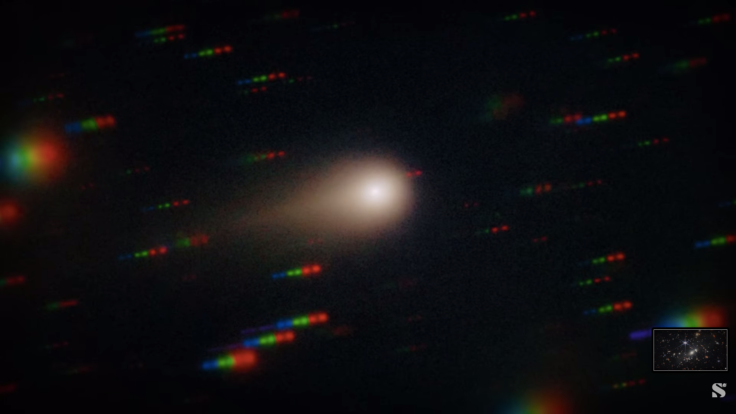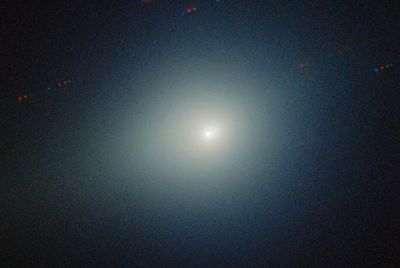Avi Loeb Slams NASA's 'Terrestrial Stupidity' Over Hidden 3I/ATLAS Images
Avi Loeb slams NASA for 'terrestrial stupidity' on Joe Rogan's show, demanding data on interstellar object 3I/ATLAS.

Are we being kept in the dark about visitors from space? According to one of the world's most prominent—and controversial—astrophysicists, the answer is a resounding 'yes'. Avi Loeb, the former chair of Harvard's astronomy department, has launched a blistering attack on NASA, accusing the space agency of 'terrestrial stupidity' for allegedly withholding critical data.
The explosive comments were made during a recent appearance on the popular podcast, The Joe Rogan Experience. Loeb, known for his provocative theories on interstellar objects, expressed deep frustration with NASA's lack of transparency regarding the interstellar object 3I/ATLAS.

Avi Loeb Accuses NASA of Damaging Data Secrecy
The core of Avi Loeb's criticism centres on a frustrating information blackout. According to a post from Space and Technology, Loeb claims that the interstellar object 3I/ATLAS had a close approach near Mars. This fly-by would have put it within range of one of NASA's most powerful observation tools currently in operation: the HiRISE (High Resolution Imaging Science Experiment) camera.
HiRISE is a sophisticated instrument aboard the Mars Reconnaissance Orbiter, capable of capturing images of the Martian surface with resolutions as fine as 30 centimetres per pixel. Loeb's argument is that if this object passed near Mars, NASA almost certainly would have tasked HiRISE to capture images of it. The release of such images would be a scientific goldmine, allowing 3I/ATLAS to be properly analysed.
The continued secrecy, however, led Loeb to coin the sharp phrase 'terrestrial stupidity.' He argued that withholding such critical imagery does more than just stifle curiosity; it actively prevents scientific progress and damages the public's understanding of our place in the cosmos.
Why Avi Loeb Champions the Search for Visitors
This is not the first time Avi Loeb has challenged the scientific establishment. He famously argued in his book, Extraterrestrial, that the first confirmed interstellar object, 1I/'Oumuamua, was not a comet or asteroid but a piece of advanced alien technology. His stance has put him at odds with many in the astronomical community, but he remains steadfast in his defence of an open-minded, evidence-based search for extraterrestrial intelligence.
To that end, Loeb founded the Galileo Project, a scientific research programme dedicated to searching for evidence of extraterrestrial technological signatures. For Loeb, the issue with 3I/ATLAS is a direct extension of this work. He emphasised the profound need for open access to all space data. His point is that discoveries of this magnitude, especially those concerning potential interstellar visitors, should not be kept within the confines of a single agency.

By calling for this data to be released, Loeb insists that the global scientific community must be allowed to analyse and share findings transparently. Only then, he argues, can we properly investigate the universe and, perhaps, finally answer the question of whether we are alone.
The chasm between Avi Loeb's relentless quest for transparency and NASA's silent corridors is widening. Is the agency's refusal to release potential HiRISE images of 3I/ATLAS a case of justified scientific caution, or is it, as Loeb claims, an act of 'terrestrial stupidity' that holds humanity back? The truth, it seems, is still out there, potentially locked on a NASA hard drive.
What do you believe? Do you side with Avi Loeb's demand for full data transparency, or do you trust NASA's process? Share your thoughts in the comments below.
© Copyright IBTimes 2025. All rights reserved.




















